Cover Story
Sandé Lollis: Becoming
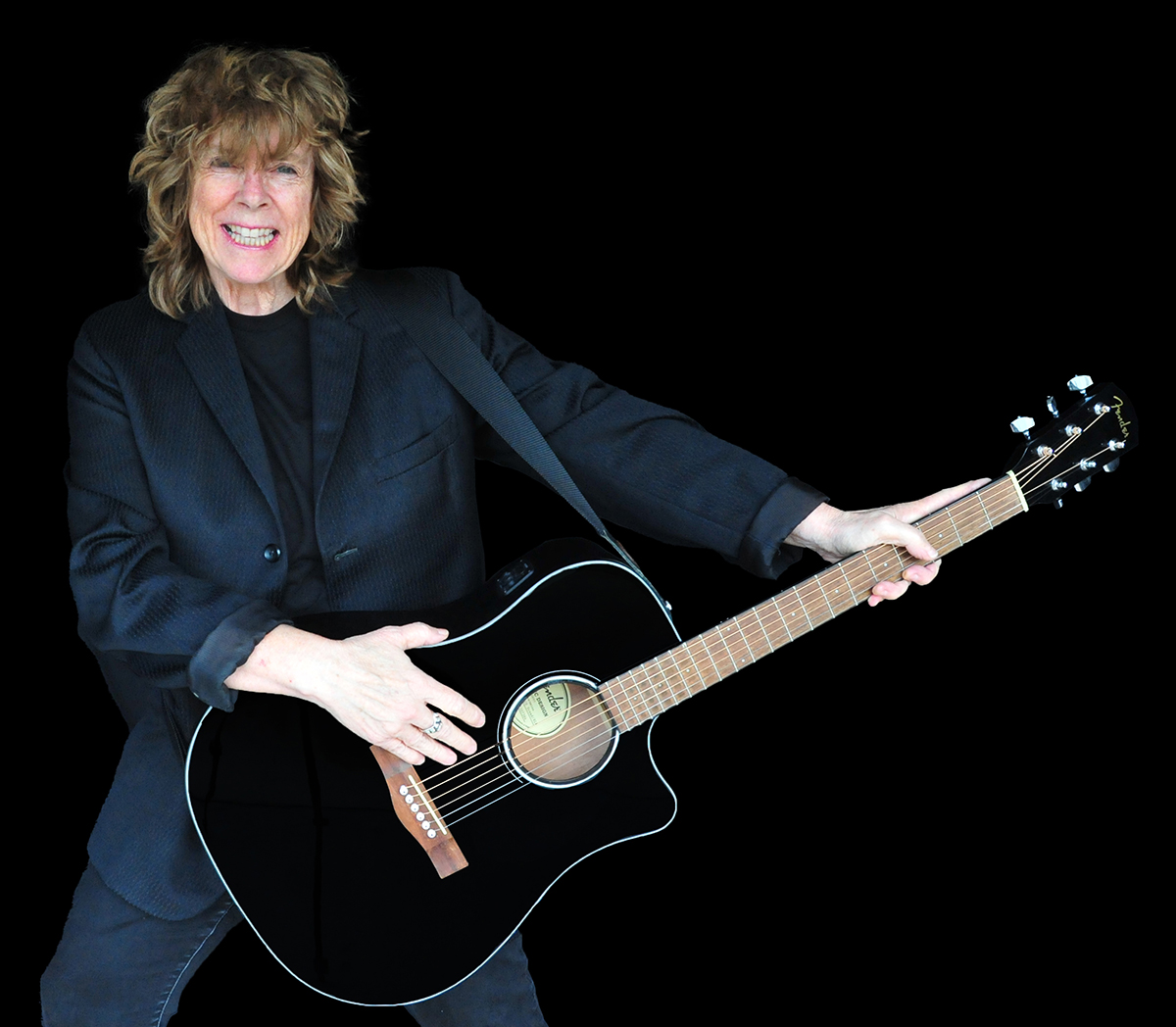
Sandé Lollis
The lights at Normal Heights United Methodist Church are soft and golden, filtering through the stained glass like a quiet benediction. On stage for her album release concert for Between Things Not Remembered, Sandé Lollis stands without her familiar low-hanging guitar for the first time in years, her hands free, her voice unguarded. She moves like someone rediscovering her body. Gesturing and reaching, singing as if the songs are rising straight from her ribcage. “I almost feel like a preacher,” she later says, laughing. “I’m doing all this shit with my hands and I’m like, where is that coming from?”
She’s glowing under the church lights. There’s an ember deep within her, pulsing and waiting. For the first time since stepping away from Enter the Blue Sky, the all-original Americana trio she led for a decade, she looks entirely herself. Sounds entirely herself. She is weightless, unburdened, and a little uncertain. What will that ember become?
“In a way,” she says, “I’m more lost now than I’ve ever been. When I split up the band, I thought I was going to be found. I thought, okay, this is the right thing to do. And it was. I still feel it was. But part of why I did it was for a challenge. I wasn’t feeling challenged. I wanted to play with new people.”
She pauses. “But it’s like, be careful what you wish for, right? Every now and then I’ll go, ‘What did I do?’ And then I remember the weight that flew off my shoulders. I remember it. It was the right thing to do. I just really need to get a grip on what it is I want to do.”
That push and pull between liberation and longing, challenge and confusion is where Sandé Lollis lives now. After a lifetime of harmonizing, leading, nurturing, and carrying the creative load of a beloved San Diego band, she’s back at square one, in a sense. She is face to face with the hardest question an artist can ask: What now?
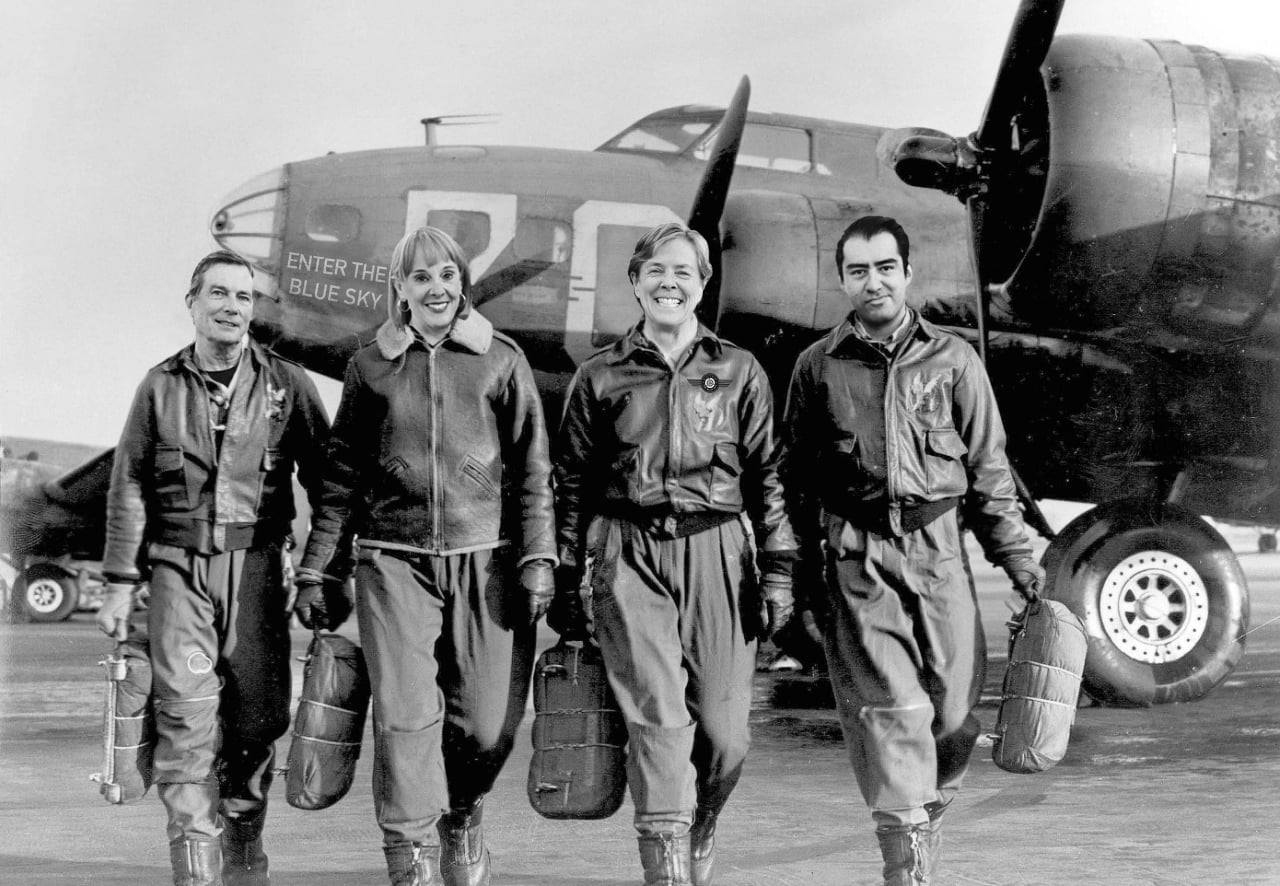
Sandé’s band, Enter the Blue Sky: John Seever, Karen Childress-Evans, Sandé, Alberto González Hernández.
Before she was Sandé Lollis, solo artist, she was the anchor of Enter the Blue Sky, a band that built a loyal following on lush three-part harmonies and poetic Americana. But as years passed and members drifted, Sandé found herself doing more and more of the heavy lifting. “After a while,” she says, “it felt like there are hobbyists and there are people who can’t even live without it. I mean, wake up, dream it, do it, all day, every day. That’s me.”
For ten years, the band was her heartbeat. Then one day, not so suddenly, she felt the pull of a new direction and followed it.
“There are things I miss,” she says softly. “I really miss the three-part harmony and being really, really solid. You have to work on that. It’s not something where you just get together once or twice and it’s good. You’ve got to really work on it.”
But she also remembers the limitations. “I didn’t realize how much being the driver and always having to pay attention to everything was taking me a little bit away from my own expression. Now, being alone, it’s like wow. I find myself playing with phrasing differently. Nobody’s depending on me to be where they need me to be for their harmonies. I feel more connected to my songs now. It feels very personal.”
When she stepped into the studio as a solo artist for the first time, first with Being Human and later Between Things Not Remembered, it felt like standing on unfamiliar ground. Without her band beside her, there was no safety net, no familiar harmonies to lean on. “Going into the studio,” she says, “I don’t know what it’s going to sound like.” That uncertainty makes her a little nervous, but it’s also what keeps the process alive and fun.
Working with producer Jeff Berkley brought another layer of vulnerability. “With Berkley, he’s the only one I’ve worked with as a solo artist,” she says. “We talk about it. You know, I like this feel, I like that feel. But until I go in that day with everybody there, I don’t know what they’ve come up with. Sometimes it’s slower, sometimes it’s faster. And if there’s something I don’t like, I don’t mind saying it. I tell myself, you’re paying for this. You better get what you want. You have to feel 100% about it.”
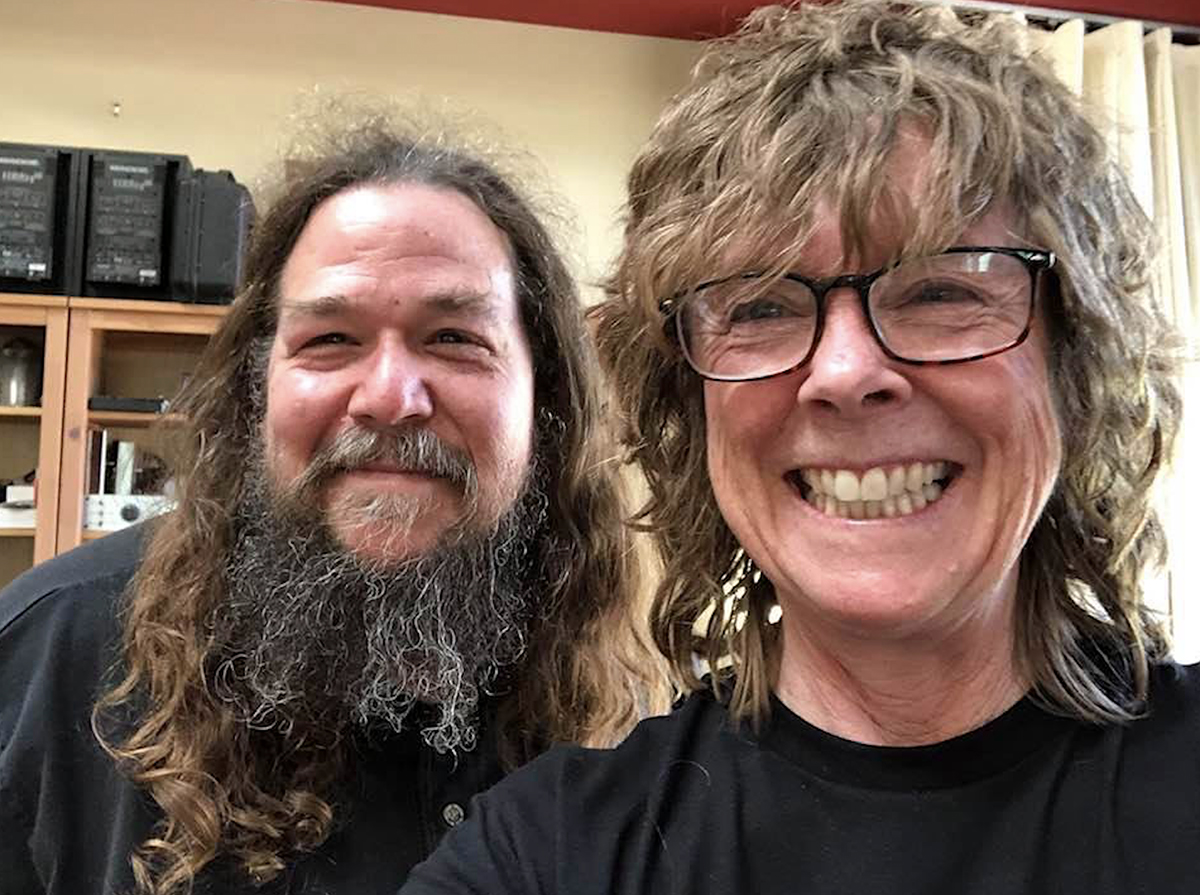
Sandé with Jeff Berkley in the recording studio.
The first solo album cost her more than she’d ever tell her husband. “He doesn’t know how much it was,” she says, laughing. “And he should never want to know. It’s not about money. It never can be. I’ve never done anything for money. It’s always about the mission. Sharing. Connecting. There’s just nothing better than having people sitting there listening.”
That hunger for connection is what drives her now, even when the bank account doesn’t. On stage, she sees it in the eyes of strangers. “There was this guy sitting close to the front,” she recalls of a recent show. “He had long hair. Part metalhead, part surfer. I go, hey, what’s your name? And he says, ‘I’m Greg. I drove down from L.A. to see you guys.’ Forty-five minutes, just to see us. And I’m like, really? He said, ‘Yeah, because of that “Stand Up” song.’”
She laughs. “I didn’t even have a song called ‘Stand Up.’ It was “Hands Off.” But the chorus starts, Stand up! He’d seen it on my Facebook feed. That’s why he came. That’s currency. That exchange. That’s the whole thing.”
The power of music to move people is something she’s seen break hearts open in real time. “One night at Java Joe’s, I was singing this song “Hold On,” and it’s from the perspective of four different people. In the third verse, it’s a 13-year-old girl who talks about fear and shame following her. When I sang that line, one of the women in the front row got up and ran out. Her friend looked at me and left too. I just wanted to know what it was. It really touched her, so much that she couldn’t even handle being there. I still think about her.”
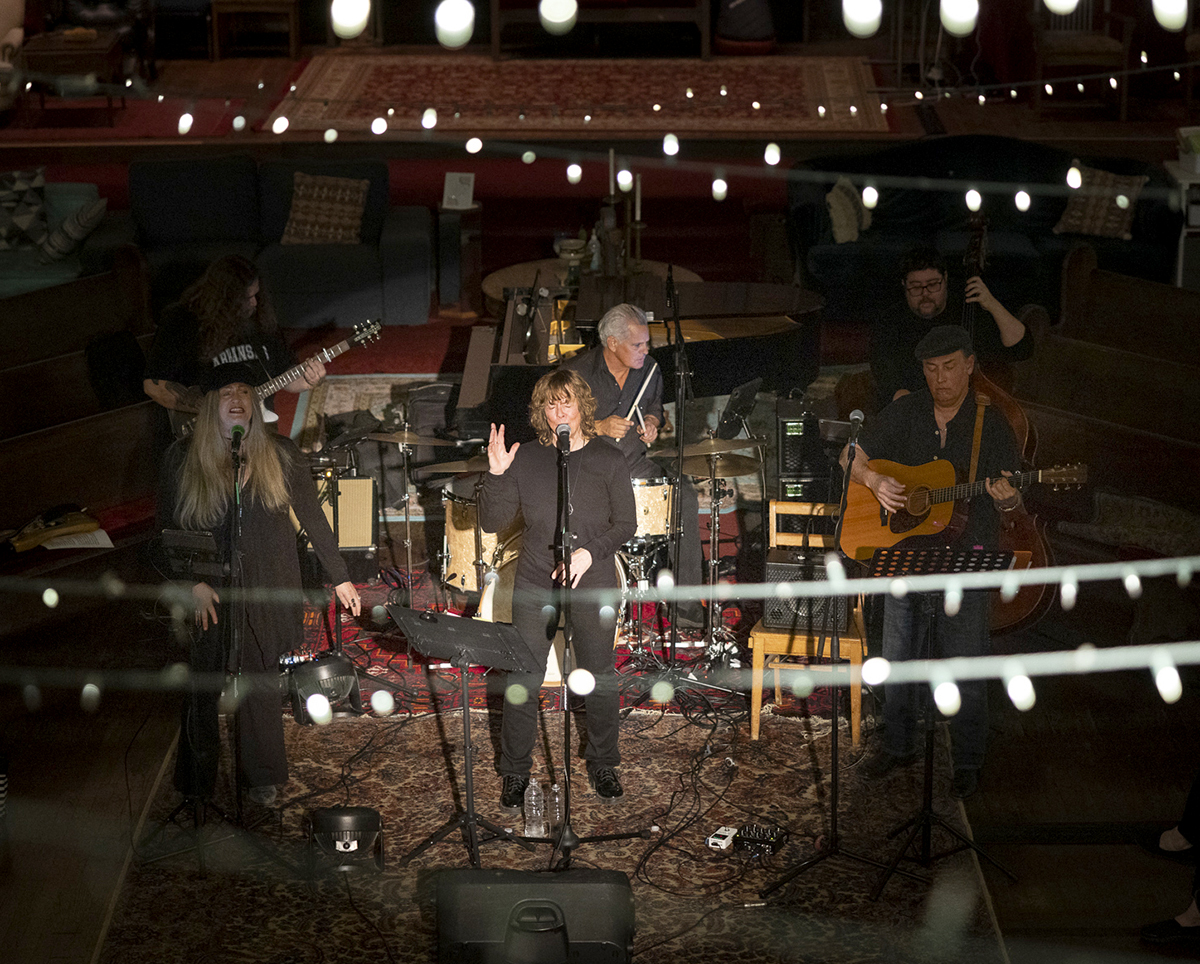
Sandé at her CD release in January of this year.
During the pandemic, when stages went dark, Sandé did what she’s always done. She created community out of thin air. “We used to have garage concerts,” she says. “People would just come, all different kinds of people. It made me think, hey, we could do this in the community garden. Wouldn’t that be nice?”
Those small driveway gatherings became the foundation for bigger things: the San Carlos Community Garden concerts as well as her music series at the historic Marston House with the Save Our Heritage Organisation. “It’s funny,” she says. “The driveway concerts were about us. The other things are not. They’re about furthering everything [in the community]. I really stress that I don’t want to have the same people every year.” She criticizes inclinations some organizations fall into, to hire the same musical guns for every showcase. “If you’re saying there’s a lot of talent in San Diego, prove it. Let’s see it all.” A challenge posed and accepted by Sandé herself.
Her dedication to lifting others is part of what makes her such a fixture in the San Diego scene and a cultivator of space and opportunity.
For anyone who knows her, Sandé carries fire. In conversation and in song, her gentle voice sharpens when she talks about equality, history, and the rights of women. These are themes that are showing up more frequently in her writing. “I am a feminist,” she says without hesitation.
Her signature peace-sign necklace falls from her neck as she speaks.“In the ’70s, I was. Then I went away from it. Not anti-feminist, just… I thought, let’s all be humanists. Can’t we just all be people together? That went fine for a while. But I’ve awakened. History repeats. I wear my peace sign again. It feels right.”
She credits her husband of 35 years with giving her the safety to grow into her voice. “He’s about the least macho-macho guy you could imagine,” she says. “He just wants me to be happy. He loves everything that makes a woman a woman. The smell, the strength, the reality of it all. He’s like, ‘You need tampons? Let me go get them.’ That’s the kind of man he is.” The kind of non-toxic man who wants her to shine at all times.
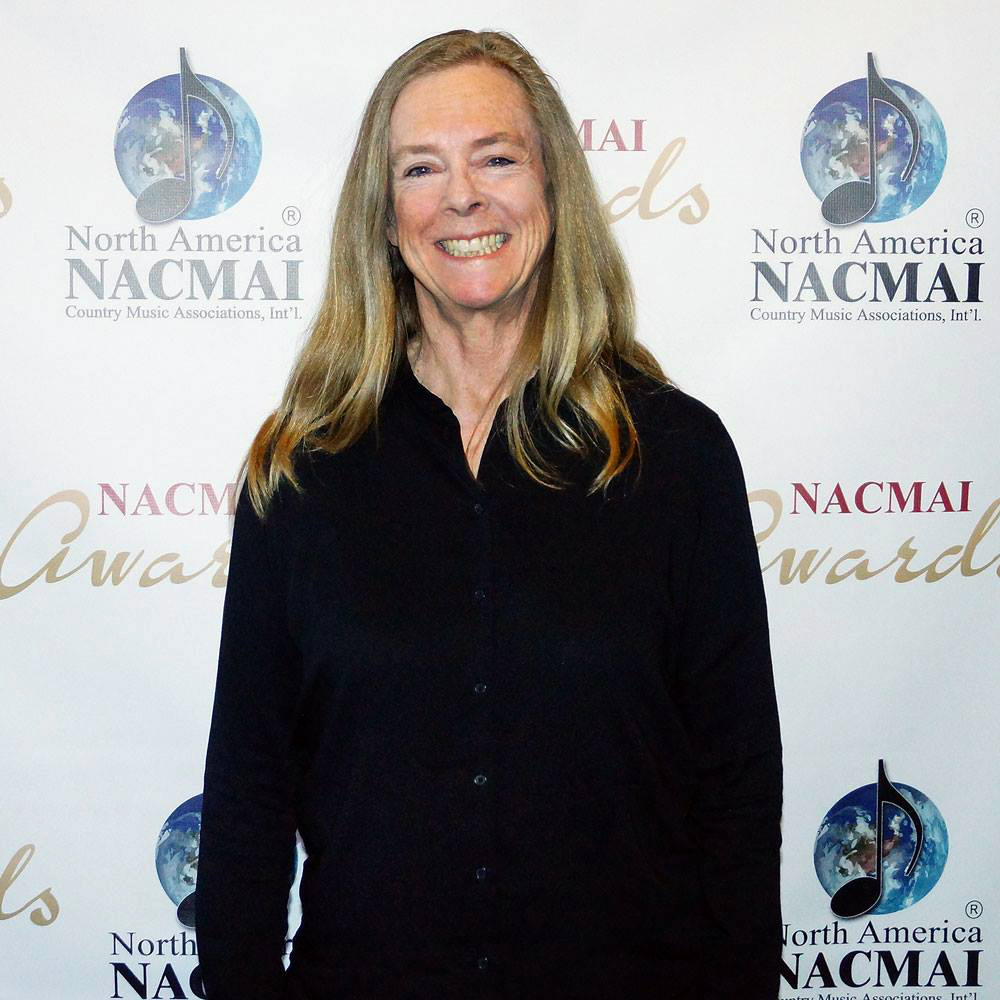
Winner at the North American Country Music Association International, 2019.
And she credits her daughter for reminding her how much words matter. “She’s strong, politically minded, well-read, and doesn’t mince words. If I don’t understand something, I call her. She sets me straight.”
Lollis even recalls nearly making a major lyrical misstep years ago. “It was a song about this trip I took with my daughter and husband. I got pulled over three times and never got a ticket. It was such a white lady privilege story, I couldn’t finish it. I realized I couldn’t sing that and feel good about it. Even now, I couldn’t do it.” Her drive for growth and self-awareness is a raw reminder of why fostering community in the arts is essential.
Art, for Sandé, is not optional. It’s oxygen. “Art in every form, visual, audio. It needs to be mandatory, not an elective,” she says. “We come out of the womb dancing. Music moves people from the moment they exist. We’ve been musicians all through the creation of humanity. It’s necessary.”
That reverence for creation coexists with an understanding of loss. She’s lost bandmates, friends, momentum, even faith in herself. When longtime harmonica player John Seever passed away in 2018, she says, “It was like losing the glue.” She still remembers isolating his harp at the memorial, listening to just his tracks. “There were times I didn’t even know what song it was. It was so ethereal.”
Her resilience, though, lies in her willingness to keep evolving. She’s already dreaming of her next chapter: a country album and another in Spanish. “I found this whole book of songs I wrote when I was living in Spain in 1985,” she says. “I’d written one called “Crying” in Spanish and later translated it. I’m dying to see what the original was like. When you translate a song, it’s not word for word. It’s the feeling.”
The idea of creating a Spanish-language record thrills her. “I’d like to do some covers, but I’d also like to look at that book and see if I can remember the songs. They’ve got chords and everything. I’d love to find musicians for it. Maybe if I say it out loud, it’ll happen.”
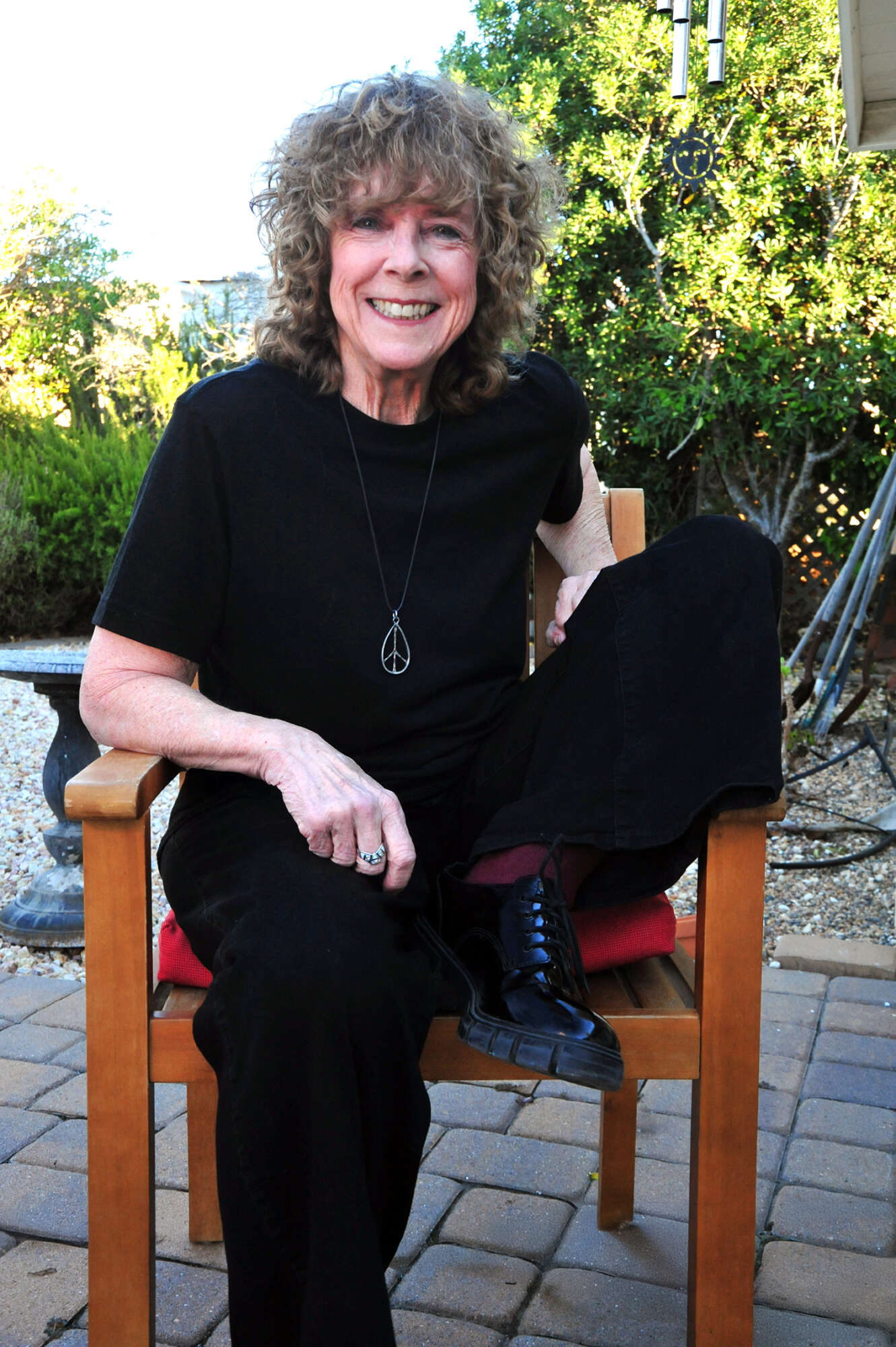
When Sandé talks about success, she doesn’t mention charts or streams or festivals. “Meaningful success?” she repeats. “I’d like to tour more. To me, that’s success. Just being on the road. I love meeting new people, making connections. Even playing for one person, and I’ve done that. And that one person said, ‘It feels like I’m in an arena.’ That’s success. You can only be you, even if it’s just one person in the room.”
Her definition of success has changed drastically since she was 13, walking to school and singing like she was already in a musical. “I thought somebody was going to come along and say, ‘You, kid. I’m taking you to the top.’” She laughs at the memory. “Now, money’s just freedom. It lets you keep doing what you’re doing. When I retire and get Social Security, maybe I’ll just do nothing but music. That would be nice.”
Until then, she keeps showing up at garden concerts, historic homes, little delis, and listening rooms. She’s a regular at events like Writers ‘Round San Diego and Songwriter Sanctuary. “Going to all the different open mics all over the place is kind of like touring for me,” she says. “Making connections in all the places I can. It’s somehow affirming. Nobody goes, ‘We wish you wouldn’t have graced our door.’ It’s lovely. It’s accepting.”
Lollis believes creativity comes in cycles. “I knew so young what I wanted to do,” she says. “My parents didn’t support it. They’d say, that’s all fine and dandy, but you’ve got to have a day job. There was nothing like a career day for musicians back then.”
Recently, she was invited to speak at an elementary school’s career day. “They were third graders,” she says, smiling. “This little girl, she could sing, but she was scared. I said, ‘You don’t want to wake up tomorrow and think, I should have done that. You’re among friends. This is the safest place you can be.’ So, she sang these beautiful runs, and everyone applauded. I said, good for you. That’s going to feel better than how you were going to feel.”
It’s a moment Sandé never got as a kid, but one she’s giving now. It’s one of her most admirable qualities: wanting to make the world and the community a little easier for the next generation.
“Art needs to be treated as essential,” she repeats. “If we lived in a Star Trek world, there’d be a planet just for artists. We’d touch something and it would make music out of our feelings. I wish I could record what comes to me in those moments. It comes so fast, and when I reach for my phone, it’s gone. But it’s in there. It’s got to come out somehow.”
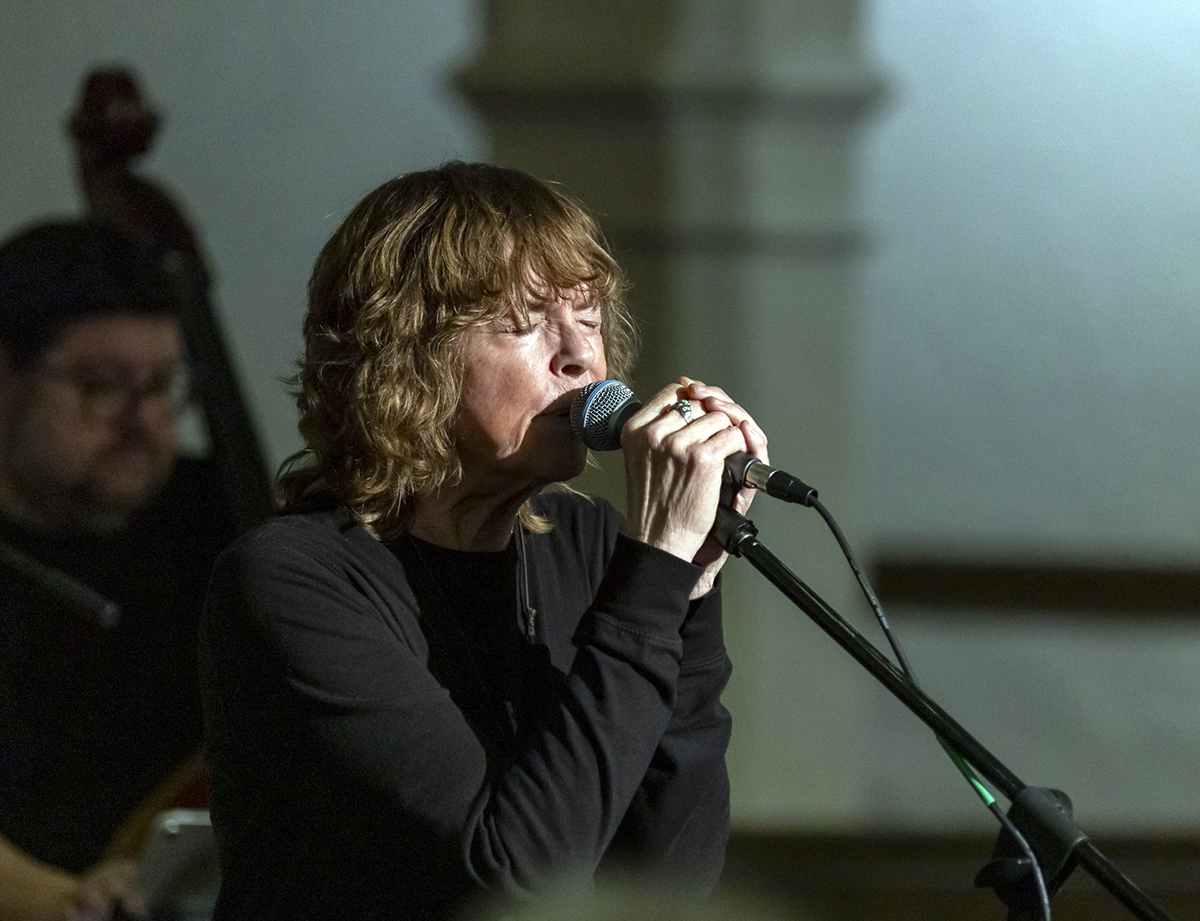
Photo by David Cupp.
She laughs at herself then. She is half philosopher, half folk singer, still burning for the next song. “I don’t think I’m really lost,” she admits, finally. “I think I’m just brewing.”
It’s the same quiet ember she carried that night at Normal Heights United, when the stained glass glowed behind her and her famously rich vibrato rose like a prayer she hadn’t rehearsed. There was no guitar to hide behind, no harmony to fall into. Just Sandé, open and unguarded, preaching her own gospel of truth and circumstance. In that light, she didn’t look lost at all. She looked like a woman who had finally stepped into her own orbit. She was radiant, restless, and still reaching for the what’s next. In truth, that’s the heart of Sandé Lollis. An artist forever in motion, suspended between the ache of what’s been and the shimmer of what’s next. She’s not lost. She’s fermenting. She’s in the beautiful, necessary mess of becoming.
What’s Next for Sandé Lollis?
True to form, Sandé isn’t staying still for long. This winter, she’ll hit the road with Cathryn Beeks and Bonnie Nicholls for a run they’re calling 12 Days of Winter with the Winter Sisters. It’s an in-the-round tour running January 3–14, with a homecoming show January 17 at Adobe Falls House Concerts in San Diego.
The trio is currently booking house concerts and listening rooms along the route, aiming for stops in Bisbee, AZ; Carlsbad, NM; San Antonio, TX; Austin, TX; Lubbock, TX; Santa Fe, NM; Albuquerque, NM; Flagstaff, AZ; Sedona, AZ; and Phoenix, AZ. Though, as Sande puts it, “we’re open to changing it up if it means finding more good people and good ears along the way.”








